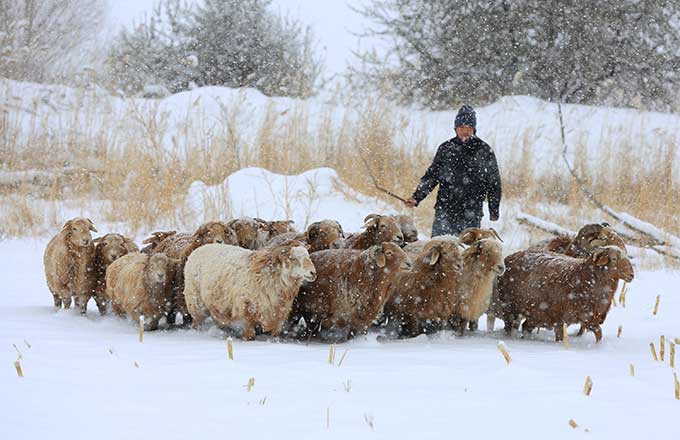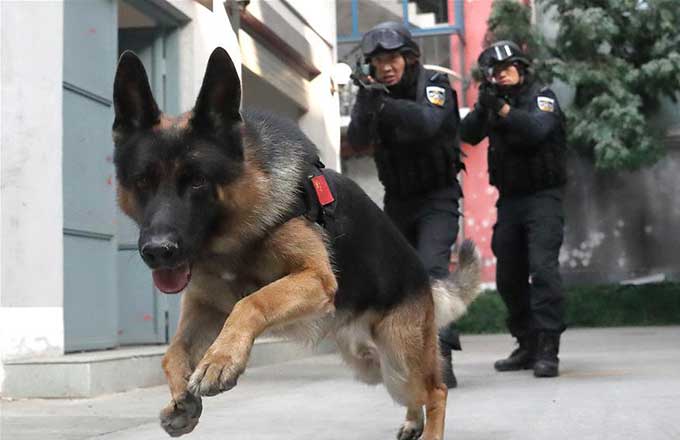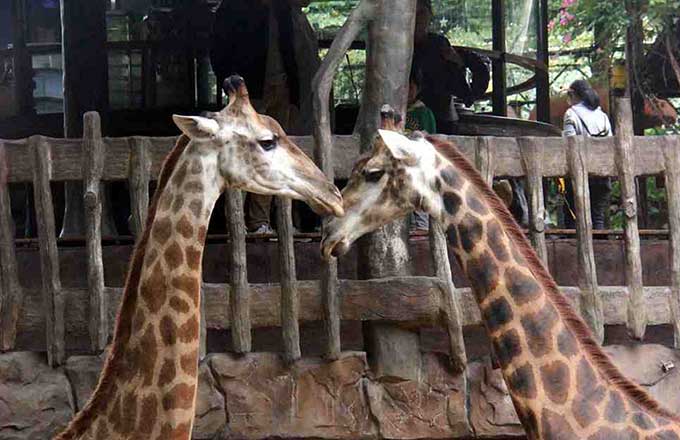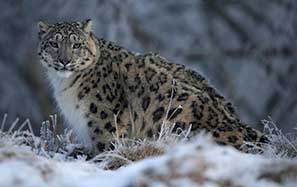Professor using soldier flies to help protect environment
The waste-eating insects help cut emissions and are used as a raw material for aviation fuel
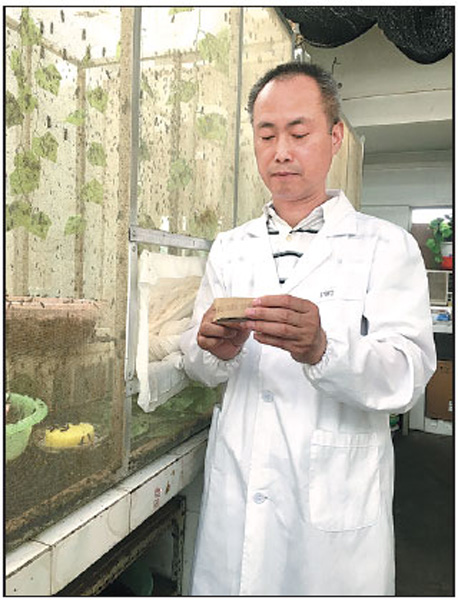 |
|
Professor Zhang Jibin at work in his laboratory at Huazhong Agricultural University in Wuhan. [Photo by Liu Kun/China Daily] |
Most people consider university professors to have "decent" working conditions. However, Zhang Jibin, a microbiology professor at Huazhong Agricultural University in Wuhan, capital of Hubei province, might beg to differ.
His laboratory is set on top of a building, where the foul smell of rotten kitchen waste fills the air.
Zhang often has to work for more than 10 hours a day, carefully studying soldier flies, which feed on rotten food and animal feces.
After feeding on waste and then being dried, the flies can be used as a raw material to make fodder, fertilizer and even high-end products such as aviation fuel and cosmetics.
Zhang has devoted the past 12 years to researching soldier flies, making large-scale domestication and breeding possible.

The 51-year-old started his research in 2004 after he learned from his adviser, Yu Ziniu, in 2002 that the United States Department of Agriculture was trying to use soldier flies to dispose of cow manure and help protect the environment.
In China, poultry, cow and pig breeding produces 4 billion metric tons of manure each year. Zhang believes that the soldier flies could help dispose of such manure in efforts to meet a green-house gas emissions target of zero. He brought the required technology to his laboratory in 2004 by cooperating with Jeffery Tomberlin, a professor at Texas A&M University in the US.
With more than 2,700 species in more than 380 extant genera around the world, only a few soldier flies are suitable for large-scale domestication and breeding. Zhang and his adviser went to Beijing and Fujian and Guangdong provinces to search in areas with rotten leaves for soldier fly pupa, eventually finding a suitable species in Wuhan.
Studies showed that the species in Wuhan have a big appetite and are not fussy eaters. "In one of our experiments, several hundred of the insects finished 1.5 kg of pork and a steamed chub in just five hours," Zhang said.
However, this was just the beginning of a long journey in Zhang's research.
"The insect is unable to copulate and reproduce without sunlight. So we need to find an alternative light source for their propagation in winter when there is not much sunlight," he said.
After experimenting with hundreds of light sources over a three-year period, Zhang eventually succeeded in 2008, using an tungsten filament lamp, which helped increase the insect's spawning by 80 percent.
Zhang's efforts paid off. Shaanxi province has utilized soldier flies domesticated by Zhang to dispose of kitchen waste, with 2 tons of the insects at a treatment center in the province having eaten more than 1,500 tons of kitchen waste, Zhang said.
The insects have helped transform poultry manure into a good seller. About 50 tons of manure was produced every day at Wuhan Chaotuo Ecological Agriculture, most of which had to be fermented for fertilizer, before they brought in the insects in 2013.
The money made from selling the manure hardly covered the cost of transportation and storage, said Chen Hui, the company's client manager.
Chen said they stop feeding the soldier flies before they pupate, when the insect is rich in crude protein, fat, calcium and phosphorus.
The dried insects can also be sold for 6 yuan ($90 cents) per kilogram, and their excrement can be sold for 350 yuan per ton, meaning poultry manure can create a profit of 810 yuan per ton.
Zhang said he has reached an agreement with a company from South America that wants to utilize his soldier flies for manure treatment.
However, the less-than-"decent" working environment has made it difficult for Zhang to recruit postgraduate students, with many said to be scared of the insects.
"Last year, a female student of mine changed her major, stating that she was allergic to the insect," Zhang said, adding that he will continue to work with soldier flies.
"Life is marvelous. I think it's marvelous to look into the change of life. That's why I am persistent and have maintained my interest in the insect for more than a decade," he said.
- Is it a thing? 10 odd jobs where you can make good money
- Message on a bottle: Mineral water company launches drive to find missing children
- Sun Yat-sen champion of national integrity, unity: Xi
- Four killed, two injured after house collapses in C China
- Cross-Straits forum held to commemorate Sun Yat-sen






